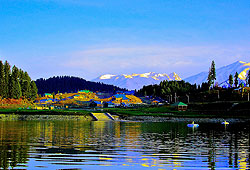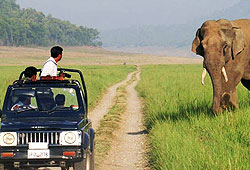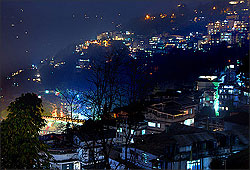Traveling Women Safety Tips in India
In recent past, a few isolated incidents have been reported in India in which foreign women travellers were sexually assaulted. In all these incidents, the accused were apprehended by the police authorities within a few days, and action was initiated to bring the culprits to justice. In the incident in Madhya Pradesh, which occurred in March, 2013, the accused were tried in a Fast Track Court and sentenced to life imprisonment in July, 2013, i.e. within four months. In another incident that took place in June 2013, in Himachal Pradesh, the culprits have been sentenced to 20 years jail terms on 17 December 2013.
What about travelling solo?
Don't rule out travelling solo. Inconveniences and annoyances are more frequently encountered than criminal behaviour, and many travellers don't have any trouble at all. If a disturbing situation does arise, remember two things: firstly, if you think something weird just happened, it probably did; and secondly, make sure you speak up! Creating a fuss, especially on public transportation, will shame the creepy guy and will likely rally your fellow passengers to your aid. In situations that are just uncomfortable, don't hesitate to find a new spot on the bus, or take a different train/bus/sidewalk/hotel room altogether. Don't be afraid of speaking out. In situations that have become dangerous, call 100 for police.
Take time to observe local customs during your stay, and especially on your arrival: behaviour and clothing that mean one thing back home may mean something totally different in India, and you may unwittingly send the wrong messages. First-time travellers to India may want to consider starting trips off with a homestay, where you can learn invaluable lessons about culture and safety the easy way. One of the joys of travelling solo in India is that you're more likely to be 'adopted' by families, especially if you're commuting together on a long rail journey. It's a great opportunity to make friends and get a deeper understanding of local culture. You may also be able to find travel companions on Lonely Planet's Thorn Tree travel forum.
What simple steps can women travellers take to feel safer?
Although there's no proven link between revealing dress and sex crimes, in India western standards of dress can be seen as an invitation to hassle. In a UN Women survey of women, girls, men and boys in Delhi, 75% of the men and boys agreed with the statement 'women provoke men by the way they dress'. Dressing modestly is also considered respectful in India for both men and women, so avoid sleeveless tops, shorts, miniskirts (ankle-length skirts are best) and anything skimpy, see-through or tight. A dupatta (long scarf) can be worn over T-shirts — or anything, really — and helps deflect attention. Many Indian women dress as they like, rightfully finding these codes oppressive and believing that the onus should be on others not to assault or harass women. But foreigners attract a lot of attention as it is, and most travellers find that dressing modestly just makes things easier.
Practical tips
- When travelling by overnight train, choose an upper berth to avoid prospective gropers and have more privacy. (Many travellers report better luck with more expensive train seats, which have fewer passengers per car.)
- Avoid eye contact and chit-chat with unknown men: both can be misinterpreted.
- Ride in women's cars on trains, where they exist, and try to book seats near the front of long-distance buses. Sit next to other women when possible.
- Wear a T-shirt and long shorts over a bathing suit when swimming, following local custom.
- Avoid public transportation at night, and never ride in empty buses or trains at night.
- Use taxis with call services at night; don't flag them down in the street, especially if you're alone.
- Travelling with a companion may ward off advances, especially if your companion is male. (Mentioning your husband frequently – whether or not you have one – may also help.)
- Wear sunglasses: people will stare at you, no matter what.


























